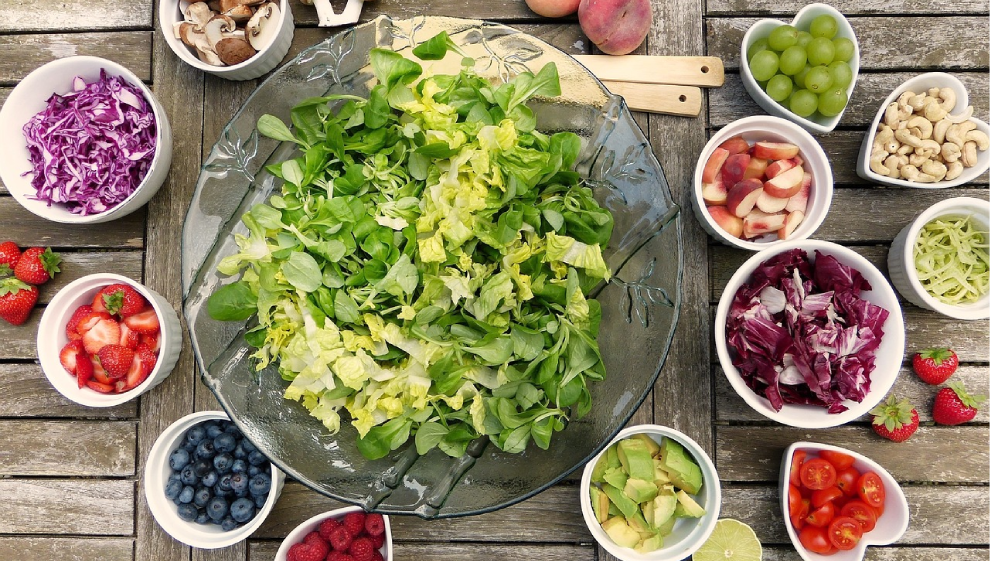What is cholesterol? | All you need to know about cholesterol levels
- Overview
- What is cholesterol?
- Is all cholesterol bad?
- What does a high LDL cholesterol reading mean?
- What are the signs of high cholesterol?
- Getting your cholesterol tested
- Is my cholesterol high?
- What to do if you have high cholesterol
- The impact of age
- All about statins
- Your genetics and cholesterol
- More useful pages
- Related articles
What is cholesterol?
Cholesterol is vital for our general health and wellbeing and for building and repairing all the cells in our body. It also plays an important role in producing vitamin D and bile acids and is essential for aiding with digestion and the production of hormones that regulate essential bodily functions.
We often think of our diet as the main contributor to our cholesterol level, when in reality only around 20% of the cholesterol in our body comes from the foods we eat. The rest is made internally.
The body transports cholesterol in our bloodstream, meaning we can take readings using a simple blood test. As cholesterol cannot travel through the blood stream on its own, it must move inside other fats we call lipoproteins.
Is all cholesterol bad?
It’s a common misconception that all cholesterol is bad for our health.
The cholesterol we typically think of as “bad” is called low-density lipoprotein (LDL). LDL transports fats and cholesterol to the tissues and deposits them in the lining of the arterial walls to form plaque. Plaque restricts blood flow and increasing our risk of developing high blood pressure, heart disease and stroke. The higher the level of your LDL, the more plaque build-up occurs.
High-density lipoproteins (HDL) are what we typically think of as “good” cholesterol. This helps keep our artery walls clean and clear. HDL transports fats and cholesterol to the liver where it can be processed and removed from the body.
What does a high LDL cholesterol reading mean?
High LDL cholesterol can result in plaque that builds up within the lining of arteries called the endothelium. The endothelium is responsible for producing and releasing nitric oxide, which helps your blood vessels dilate.
What does this mean? When the function of the endothelium is disrupted by plaque, it cannot produce enough nitrous oxide to dilate effectively.
Issues with artery dilation can cause narrowing of the arteries and restricted blood flow, resulting in an increased risk of high blood pressure, angina, heart attack, stroke, and kidney disease.
In addition, if plaque ruptures and deposits itself in the small vessels inside the heart or brain, you can experience a heart attack or stroke.
What are the signs of high cholesterol?
Often, high cholesterol won’t present any noticeable symptoms. This is why it's often referred to as a "silent condition”. This is why getting your cholesterol checked is so important.
Many people only discover they have high cholesterol when they go for a routine blood test.
You may develop symptoms of diseases associated with a high cholesterol reading, such as chest pain, chest tightness, shortness of breath, or abnormal fatigue and tiredness. On occasion you may also find cholesterol deposits that are visible in the skin around the eyelids.
Getting your cholesterol tested
It’s recommended that all adults get their cholesterol checked. How often you need to do this should be discussed with a healthcare professional.
All that’s involved is a quick and easy blood test. This will help identify signs of high cholesterol and whether certain lifestyle changes may have a positive impact on your overall health and wellbeing.
- Want to get your cholesterol tested? Click here to book a blood test
Is my cholesterol high?
Cholesterol in the blood is expressed in millimoles per litre of blood (mmol/L).
When you get a blood test, your healthcare professional will talk you through your reading and help answer any questions you might have. If you’re waiting for your test and are wondering what a healthy reading looks like, take a look at the information below.
Total cholesterol should generally not exceed:
- 5mmol/L or less for healthy adults
- 4mmol/L or less for those at high risk
LDL levels should generally not exceed:
- 3mmol/L or less for healthy adults
- 2mmol/L or less for those at high risk
HDL levels should generally be greater than:
- 1mmol/L
What to do if you have high cholesterol
If you do have high cholesterol, there are several things you can do to lower your risk of developing harmful conditions in the long-term.
Take a look below to find out what lifestyle changes can have a significant impact on your test readings.
Improve activity levels
Regular exercise helps your body use cholesterol for energy, reducing the levels found in your blood. Regular exercise also helps manage weight and has a number of mental health benefits that can help reduce the likelihood of us engaging in potentially harmful eating habits.
Interested in learning about exercise and cholesterol? Click here to find out more
Eat healthy

Eating foods that are low in trans and saturated fats will help reduce your harmful cholesterol reading. Focus on wholefoods and avoid processed food where possible.
Instead, try to focus on eating more foods that are low in problematic fats, including:
- Fruits
- Vegetables
- Whole grains
- Meat alternatives
- Seeds and beans
If you’re in need of detailed cholesterol and diet advice, click here to learn more
Quitting smoking
The best advice we can give is to quit smoking if you haven’t already.
Smoking is closely linked with an increased risk of high blood pressure, heart problems, cancer, high cholesterol, and premature mortality.
Reduce your alcohol intake
Excessive alcohol consumption can increase cholesterol levels because it stimulates the liver to increase production of low-density lipoprotein.
Alcohol is also linked to weight gain, which goes hand in hand with higher cholesterol levels.
Lower your blood pressure
High blood pressure damages our artery walls which makes it easier for cholesterol to form plaque deposits. When blood flow is restricted, “good” cholesterol has a harder time cleaning away “bad” cholesterol.
Lowering your blood pressure can help reduce your overall risk of heart disease and improve overall heart health by improving your blood flow and circulation.
The impact of age
As we age, our LDL cholesterol levels tend to rise. This is partly due to the natural aging process and partly due to hormonal changes that occur as we get older.
Our bodies also start to slow down as we age which affects our metabolism. This can make exercise more difficult and slow the process of the removal of bad cholesterol from our bloodstream.
Both these factors can contribute to lower overall energy levels, creating a vicious cycle that can prove hard to break as we age.
What can I do to help?
As we age, staying active becomes more and more important. Whilst the sofa may seem an attractive option in retirement, numerous health problems and complications are linked with slowing down as we get older.
What can work is adapting and changing the activities we love. Whilst you may not be able to work out as intensely as you once could, lowering the speed and extending the duration of an activity keeps things accessible.
- Sound too difficult? Click here for some simple exercises you can do at home
All about statins
Statins are a widely prescribed medication for people with high cholesterol. They work by inhibiting the liver's production of cholesterol.
Statins are a controlled medication that must be prescribed by a healthcare professional. For more information, speak with your GP about whether they’re relevant for you. Common statins include atorvastatin, simvastatin, rosuvastatin, and others. They are available in both brand-name and generic forms.
Doctors will usually suggest lifestyle adjustments and making healthy changes to your diet before prescribing medication for high cholesterol.
Your genetics and cholesterol
Some people inherit a gene that means their cholesterol levels will be higher than normal. This condition is known as familial hypercholesterolaemia.
Familial hypercholesterolaemia causes around 10% of early onset coronary artery disease cases. For people with this gene, diet and exercise can seem to only have a marginal impact on their cholesterol levels.
More useful pages
If you haven’t found what you’re looking for, try one of our other cholesterol-related pages below:
- Lowering cholesterol by changing your diet
- Lowering cholesterol with exercise
- Our favourite healthy recipes
- Get your cholesterol levels checked
Last updated Thursday 2 May 2024
First published on Tuesday 22 November 2016

